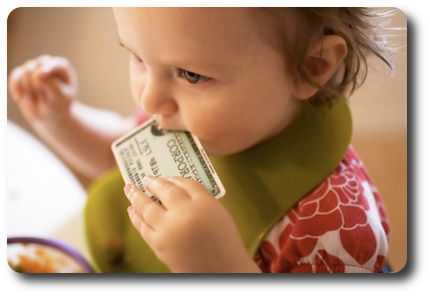
By Evan Fischer
Sponsored Guest Contributor
Debit cards; virtually everyone has one. If you are a parent who wants to teach your child about the importance of being responsible with their money, it’s completely understandable (and responsible) to instruct them on the proper use of a debit card.
Before you go any further, there are a number of questions you should first consider. For example:
- Does your child actually need a debit card?
- Can your child be trusted with one?
- What are the consequences that will be put into place should they misuse it?
All of these are valid questions to consider and we will explore a few factors that will help you in reaching your decision by looking at the benefits of having a debit card, along with some of the challenges.
The Advantages
When it comes to the benefits of having a debit card, there are many. Perhaps the most popular one is convenience. Almost every place of business where cash is accepted, debit cards are as well. They’re also easier to get than a credit card, not to mention there is no interest attached to your purchases. Thanks to online banking, you can keep an up-to-date and accurate record of the goods and services purchased on the debit card. These reports will be exceptionally handy for parents when they review the debit card use with their children.
Another perk (that could also be seen as a “con”) is that you can get access to cash very easily. Although most banks have limits on the amount that can be withdrawn from an ATM on a daily basis, that total tends to be fairly high (around $400 to 500). All that you need is a pin number and the money is as good as in your hands.
The Disadvantages
The downside of a debit card, that doesn’t get discussed nearly as much as it probably should, is the fact that the overall use is not reflect on your credit score (this is not the same for a credit card). No matter how much you use it, the credit bureaus are not notified. This means that responsible use of the debit card will not benefit your child in the future when they apply for a credit card.
While it is certainly beneficial to avoid accruing interest on purchases by using a debit card, there can still be overdraft, transaction, and monthly fees based on the kind of account that you have set up with your bank. Additionally, and something of a major issue for many, if a debit card charge is disputed it can take as long as a couple of weeks for the matter to get resolved. This is primarily due to the fact that debit cards tend not to have reliable fraud protection. A credit card company will oftentimes places a hold on an account when they notice unusual activity. If a thief happens to get a hold of your debit card and they know the account pin number, your bank account can end up as good as empty. To get that stolen money back will take time, even weeks to rectify the issue.
If you’re still wondering if your child should have a debit card or not, don’t make a final decision without thoughtfully taking all of these factors into account. You might find it helpful to schedule time with your local bank and talk to a representative to get all the details. Knowing as much as possible will help make your decision an easier one, backed by facts instead of fears. Definitely don’t be scared of introducing them to new things, even as it relates to money. As you are already involved in their lives, remain aware of the choices that they make along the way and help guide when and where needed.
Each child is different and their behavior is as much related to their maturity level as the environment they are raised in. What you need to decide is if your child is ready for the benefits of owning a debit card, as well as the expectations that will be placed upon them to make wise decisions. Debit cards are not toys, after all, and the benefits of owning one can quickly be outweighed by the consequences of using it irresponsibly. One thing to keep in mind is that as long as they are living with you, you have the ability to loosen the reigns or tighten them. If you do get your son or daughter a debit card, simply supervise them throughout the process. Help them learn and they will be all the better for it. A child who learns to be responsible with their money now will be a responsible, money-savvy adult in the future.
About the Author:
Evan Fischer is a freelance writer and part-time student at California Lutheran University in Thousand Oaks, California. He enjoys writing about the latest tech news for a variety of companies and discovering new and innovative gadgets.

